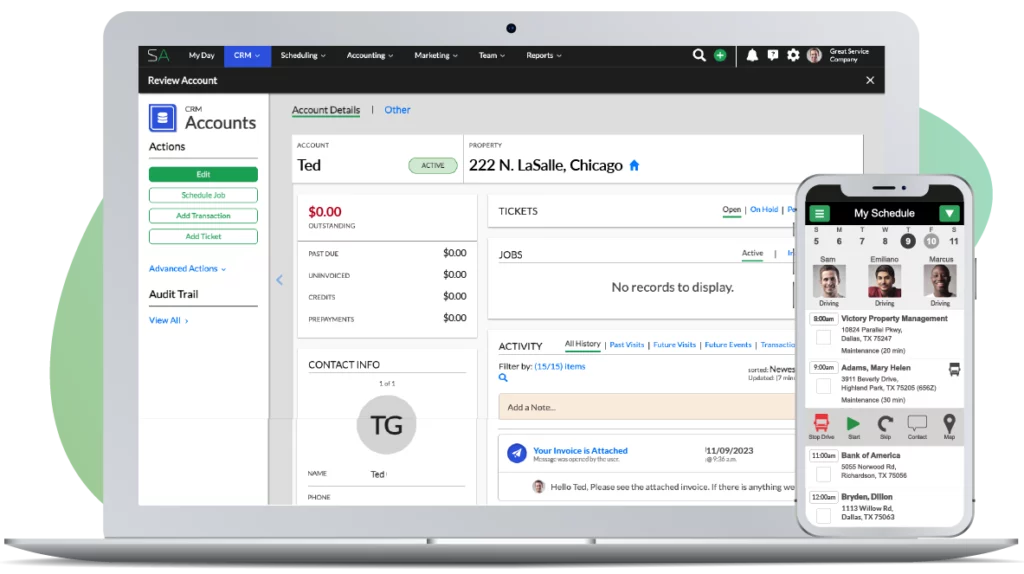Jonathan interviews Ryan about their best company meeting strategies.
Jonathan: Ryan, the last time I was at your company I was super impressed and one of the things I was impressed about, one, I think your team is pretty awesome. I like everybody on your team which is everybody you’ve introduced me to is a bunch of great guys and gals. One of the things that stuck with me, and actually John who is my business partner, we both left and said, “We’ve been to a lot of companies.” You guys run meetings differently than most. In fact, you actually have meetings. A lot of companies don’t have meetings. Your meetings are different than the way everybody else does it. I’m going to give my two cents.
The reason I think this is really important is because I believe that what they’re doing leads to employee retention. I believe that what you guys are doing, and correct me if I’m wrong on any of this, but you’ll agree leads to an interesting culture where people want to stay with the company. They like working at the company. They have fun. I also theorize that it leads to more growth when everybody is happy and doing well that the company as a whole gets better. I’ve probably put some words in your mouth but that was my takeaway walking away from their company. I wish you could have been there and sat in on one of the meetings because the team does a really good job running it.
If you would, where I’m leading you here, tell me why you guys even do this because it’s so different than what most people do, and then I’ll ask you a few questions about it.
Ryan: Sure. About five years ago, we sat down as a management team and decided that we needed to change the way we ran our meetings at our company. I think this is what you’re talking about. We love to have fun. We’re outdoors. We’re exciting guys. We enjoy what we do. We all love working together and our meetings sucked. They were just terrible. As most company meetings are-
Jonathan: Was this sitting around the table having a meeting or what were you doing?
Ryan: We’d have a meeting around a topic. Maybe it’s the production team getting together to talk about production stuff. The sales team getting together on Friday mornings to talk about sales for the previous week and maybe somebody brought a topic for discussion, maybe they didn’t. Everybody was late, usually 10-15 minutes late. Nobody really got anything out of it. There were no actionable items that came away from it. We didn’t grow and we didn’t get better. We started searching and we found a book called, “Traction” which is just a great book. It helped us to build a meeting structure that makes the meetings better. It’s actually fun now.
Jonathan: I would say that it was an entertaining meeting. It’s been a little while now, but I think everybody did show up on time. Would that be true?
Ryan: Yes.
Jonathan: I also remember that several of you conducted the meeting. It wasn’t just one person. Was it the different leaders of the company?
Ryan: Yes, each leader in their area conducts the meeting for their area. Production team leader produces product team meetings. I’m the sales manager so I produce the sales meeting. Management leaders produce management meetings.
Jonathan: Does everybody sit in? For example, do the sales guys stay in the meeting when production is doing their part? Is the whole company together or do you break out and run individual meetings?
Ryan: Only the people that will have input into that particular meeting are in that meeting. In our sales meeting we have a production representative because there’s sales production crossover, but not everyone from production is in the sales meeting.
Jonathan: At the very beginning I was giving my opinion of what it might do for the company, what I perceive it might do in terms of improvement. What have you guys seen since you’ve instituted these meetings?
Ryan: One, we’ve been able to work on a lot of areas in our company because we have actionable items that come out of our meetings based on the format that we use. Two, it’s increased the fun in the day so it makes everybody more enjoyable. It makes the meeting more enjoyable.
Jonathan: How often are you doing the meetings?
Ryan: It depends on what it is, typically once a week.
Jonathan: Okay. Is there a best day?
Ryan: It depends on the area. It depends on which team is meeting. We have different meetings on different days for different teams.
Jonathan: We’re in the meeting and something comes up I don’t know. I suggest something or you tell me, “Hey, we need to do this thing.” Is there an element of accountability afterwards because you’ve set action? How do we make progress so that we don’t just have these meetings and nothing transpires? How do we make sure those participants in the meeting actually come to the meeting next week with their action items taken care of?
Ryan: One of the elements of all of our meetings is called the ‘to do list.’ If we have an item that comes up that needs to get done by the next week, then whoever that element gets assigned to or whatever team it gets assigned to has to come with a report next week on that element.
Jonathan: Whether it’s done or not done?
Ryan: Done or not done. Why is it not done if it was expected to be done?
Jonathan: Okay. All right. Same question I’ve asked before because you guys are a big very successful operation. When you’re teaching your franchisees, who might run smaller operations, may or may not run smaller operations. If they’re a smaller operation, do you still teach them how to run an efficient meeting or do you say once you get to a certain size that’s when meetings become important? What’s your approach there?
Ryan: Franchises are a little bit different than say a one or two man operation. Even if it’s just an owner/operator in a franchise, we are still their accountability partner. They have the whole team of the franchise to help them continue to move forward. If I was a two-man operation, I would be holding at least one meeting a week on a very specific platform, start-stop same time, using a very specific outline that we use that we took out of the book, ‘Traction’ to run that meeting to make sure that my whole team, whether it’s just one or two guys, were in the same communication.
Jonathan: How long is the meeting?
Ryan: It varies between 45 minutes to an hour and five minutes.
Jonathan: It’s a bit of time then?
Ryan: Yes.
Jonathan: If I was a four-man operation, would it still be an hour long meeting potentially or does it shrink down?
Ryan: It depends, again, on the purpose of that meeting. If it’s something very short and concise, then it may be just a 30-minute op meeting. If it’s something more in-depth, the more people you have then the longer the meeting is going to be. We typically never go over an hour and five minutes.
Jonathan: If whoever is watching and wants to implement meetings in their business, what’s an action item for them so that they could determine if this is … I’m just going to tell you this is worth doing. You should be doing it. The guys that are really successful and make a lot of money are doing it, generally. Just assume that’s the truth and knowing that, what’s the first action item that they should go out and do if they want to implement this in their business?
Ryan: I would start with reading the book, “Traction” and then I would start with setting a meeting agenda and every meeting in your company should have a very similar agenda. It may vary with one element or another from meeting to meeting, but have a very similar agenda so that everyone knows what to expect every time they come to a meeting.
Jonathan: On a side note, there’s a couple books out there by the name of “Traction.” I think the author is Gino Wickman.
Ryan: Yes, Gino Wickman.
Jonathan: Yes, Gino Wickman. Fantastic book. There’s way more takeaways in that book than just meetings.
Ryan: That’s right.
Jonathan: Most people won’t implement it so hopefully you do. All right. Thanks, Ryan.
Ryan: Thank you.



